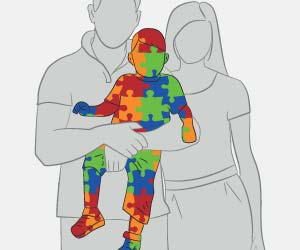Love Hormone Benefits: Start using oxytocin as a treatment to address attachment issues or to reduce repetitive behavior in people with autism.

‘Love Hormone Benefits: Start using oxytocin as a treatment to address attachment issues or to reduce repetitive behavior in people with autism.’
Read More..




"In a first stage, we examined the amount of oxytocin produced by the participants themselves. The subjects also filled out several questionnaires," Professor Alaerts explains. "An analysis of the data revealed that the amount of oxytocin found in the subjects' saliva was inversely related to their self-reported attachment issues."Read More..
In a second stage of the research, the team examined the long-term effects of administering oxytocin through a nasal spray. This experiment produced remarkable results: the participants who had been given oxytocin for four weeks experienced positive effects until up to a year later.
Less Repetition, More Attachment
"We divided the 40 participants into an experimental group and a control group. The control group received a placebo for four weeks," says doctoral student Sylvie Bernaerts, who is the first author of the study in Molecular Autism.
"Over the course of a full year, we also asked the participants to fill out questionnaires on four different occasions. These questionnaires were used to examine the impact of the oxytocin-containing nasal spray on the symptoms of autism."
Advertisement
This study shows for the first time what the long-term effects are of repeatedly administering oxytocin to people with autism. Professor Alaerts: "Participants who took oxytocin every day for four weeks experienced positive effects until up to a year later. That's a remarkable result."
Advertisement
For this study, the scientists only selected male participants. This was partly because autism is more prevalent in men, and women's hormonal cycle may influence the test results. Furthermore, oxytocin is already being used to induce labor or breastfeeding in pregnant women or women who have recently given birth, respectively. In other words, there are more factors to take into account in female test subjects.
And what about using oxytocin as a treatment? "As oxytocin is already being used in medicine, you might think that we can start using it quite soon to address attachment issues or to reduce repetitive behavior in people with autism," says Professor Alaerts. But she is quick to temper expectations: "The findings we're presenting are the result of a first pilot study. A lot of further research needs to be done before oxytocin can be used to treat people with autism."
Source-Eurekalert














